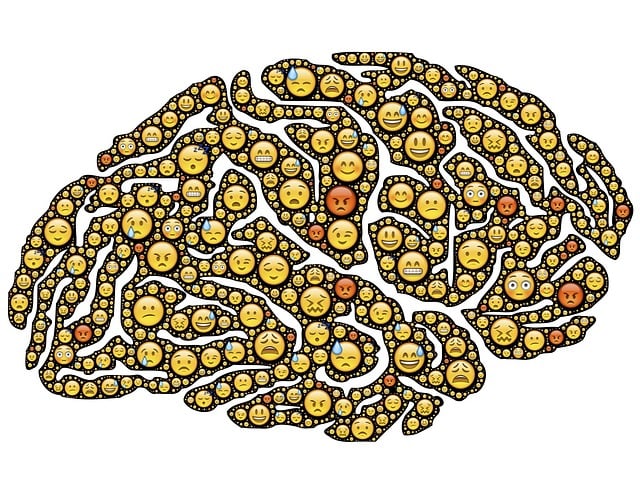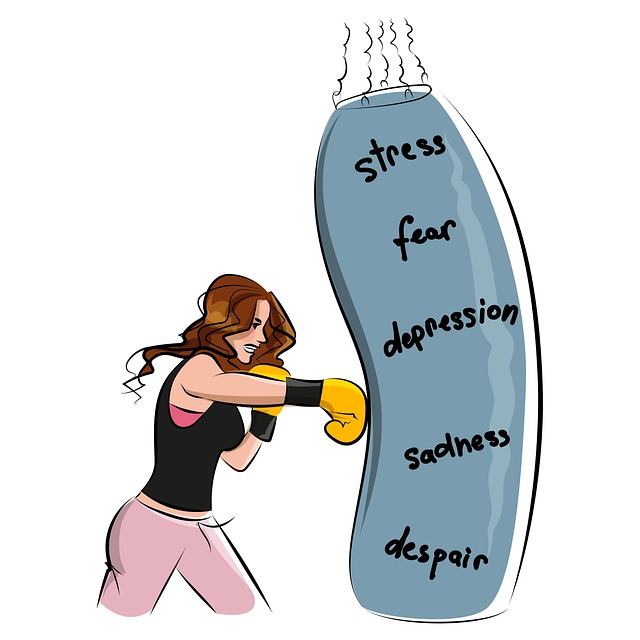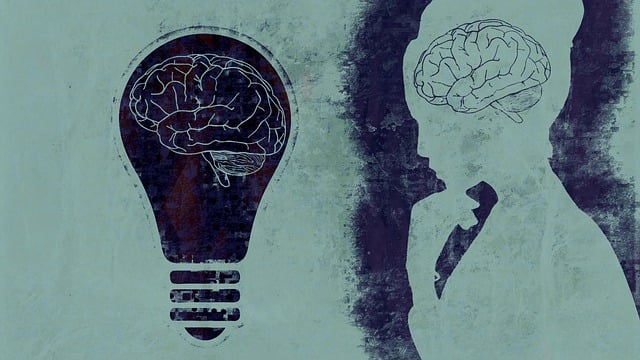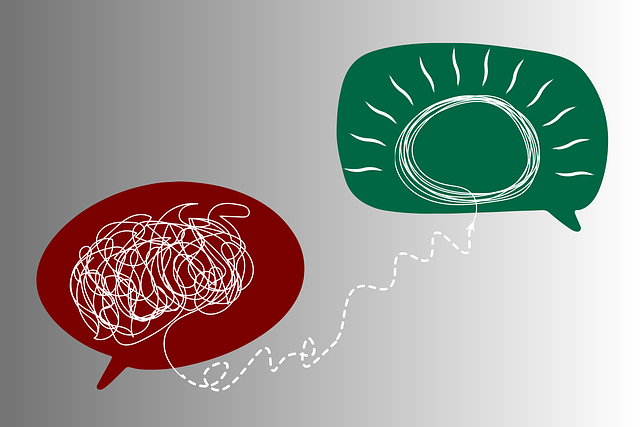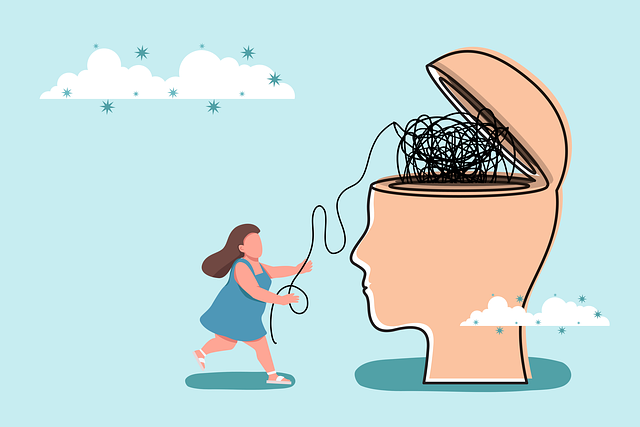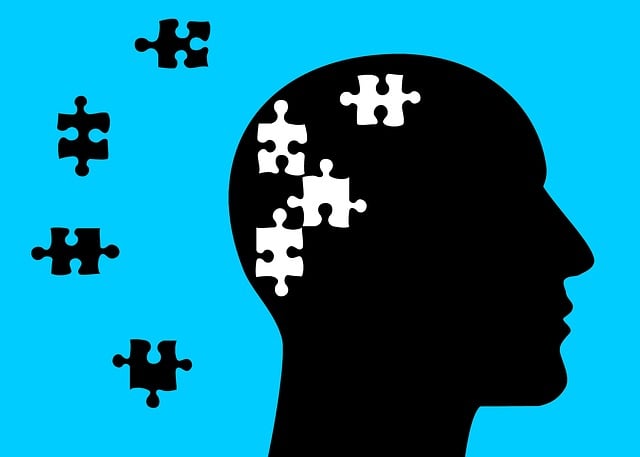Self-care is essential for managing mental health conditions like Superior Oppositional Defiance Disorder (SODD), addressing rising stress levels and mental health issues. SODD therapy emphasizes integrating self-care into daily routines to counteract symptoms, build resilience, and improve overall well-being. Barriers to self-care for individuals with ODD require cultural sensitivity in mental healthcare and strategies like empathy building and Mental Wellness Coaching Programs. Incorporating mindfulness, exercise, and tailored therapy, such as SODD Therapy, is crucial for managing ODD and fostering emotional regulation, healthy habits, and coping mechanisms. Overcoming challenges through personalized therapy, social skills training, and stress reduction methods empowers individuals with ODD to maintain a balanced and fulfilling life.
“Unwind, rejuvenate, and embrace well-being—this is the essence of self-care, especially for those navigating mental health challenges. In this article, we explore the profound impact of self-care on mental health, delving into the unique barriers faced by individuals with Oppositional Defiant Disorder (ODD). We offer practical strategies to incorporate self-care into daily routines, ensuring a holistic approach to well-being. Additionally, we provide insights on overcoming challenges and maintaining a consistent self-care plan, highlighting the transformative power of Superior ODD Therapy.”
- Understanding Self-Care and Its Impact on Mental Health
- Identifying Barriers to Self-Care for Individuals with Oppositional Defiant Disorder (ODD)
- Incorporating Effective Self-Care Strategies into Daily Routines
- Overcoming Challenges and Sustaining a Healthy Self-Care Plan
Understanding Self-Care and Its Impact on Mental Health

Self-care is a fundamental practice that involves attending to one’s physical, emotional, and mental well-being. It encompasses various activities that nurture and support an individual’s overall health. Understanding self-care is crucial in today’s fast-paced world where stress and mental health issues like Superior Oppositional Defiance Disorder (SODD) are on the rise. SODD therapy often emphasizes the importance of integrating self-care practices into daily routines to counteract symptoms and promote resilience building.
By prioritizing self-care, individuals can significantly impact their mental health and overall quality of life. It serves as a powerful tool in depression prevention and plays a vital role in Mental Illness Stigma Reduction Efforts. Through dedicated self-care strategies, one can enhance emotional regulation, improve coping mechanisms, and foster a sense of inner peace. These practices allow individuals to reconnect with themselves, set boundaries, and engage in activities that bring joy and relaxation, ultimately leading to improved mental well-being.
Identifying Barriers to Self-Care for Individuals with Oppositional Defiant Disorder (ODD)

Identifying barriers to self-care is a crucial step in supporting individuals with Oppositional Defiant Disorder (ODD). This group often faces unique challenges when it comes to prioritizing their mental wellness due to the inherent nature of their condition. ODD is characterized by frequent and consistent opposition and defiant behaviour, which can make engaging in soothing activities or practices that foster self-care extremely difficult. These individuals may struggle with regulating emotions and maintaining positive relationships, impacting their willingness to participate in therapeutic processes like Superior Oppositional Defiance Disorder Therapy (SODD Therapy).
In the context of ODD, several barriers can hinder self-care practices. Cultural sensitivity in mental healthcare is essential as cultural factors influence coping mechanisms and support systems. Empathy building strategies, a key component of SODD Therapy, can help bridge this gap by fostering understanding and trust. Additionally, the development of Mental Wellness Coaching Programs can offer tailored guidance, teaching individuals with ODD skills to navigate their emotions and manage stress effectively, thereby enhancing their overall mental wellness.
Incorporating Effective Self-Care Strategies into Daily Routines

Incorporating effective self-care strategies into daily routines is a powerful tool for managing mental illness and reducing stigma. For individuals dealing with conditions like Superior Oppositional Defiance Disorder (SODD), integrating mindfulness, exercise, and therapy can be transformative. Mental wellness coaching programs have gained popularity as they offer structured support, teaching individuals to listen to their minds and bodies, fostering self-awareness, and promoting healthy habits that combat stress and anxiety.
By embracing Mind Over Matter principles, one can take control of their mental health journey. This involves setting aside dedicated time for activities like meditation, journaling, or engaging in hobbies that bring joy. Such practices not only enhance overall well-being but also strengthen the mind-body connection. Through consistent effort and support from therapy sessions, individuals can develop resilience, improve coping mechanisms, and challenge negative thought patterns associated with mental illness, ultimately leading to a more balanced and fulfilling life.
Overcoming Challenges and Sustaining a Healthy Self-Care Plan

Overcoming challenges is a vital aspect of sustaining a healthy self-care plan, especially for individuals managing conditions like Oppositional Defiant Disorder (ODD). While it might seem daunting to integrate self-care into a daily routine, especially when facing ODD’s inherent oppositional nature, it’s not impossible. Professional therapy, such as Superior Oppositional Defiance Disorder Therapy, offers strategies tailored to help clients develop coping mechanisms and enhance their ability to engage in self-nurturing activities. This personalized approach is key to fostering resilience against life’s challenges.
Social Skills Training and Stress Reduction Methods are powerful tools within this therapeutic framework. By learning to recognize and manage stress, individuals with ODD can improve their emotional regulation, making it easier to adhere to a consistent self-care regimen. Embracing Mind Over Matter Principles allows them to reframe negative thoughts and behaviors, encouraging a more proactive and positive approach towards personal well-being.
Self-care is a powerful tool for managing mental health, especially for individuals navigating Oppositional Defiant Disorder (ODD). By understanding the impact of self-care and identifying specific barriers, such as those presented by ODD symptoms, we can develop tailored strategies. Incorporating these effective practices into daily routines allows for sustained improvement. Overcoming challenges with support and consistent effort ensures a healthier, more balanced life. Remember, in the context of ODD therapy, prioritizing self-care is a crucial step towards achieving superior mental well-being.
